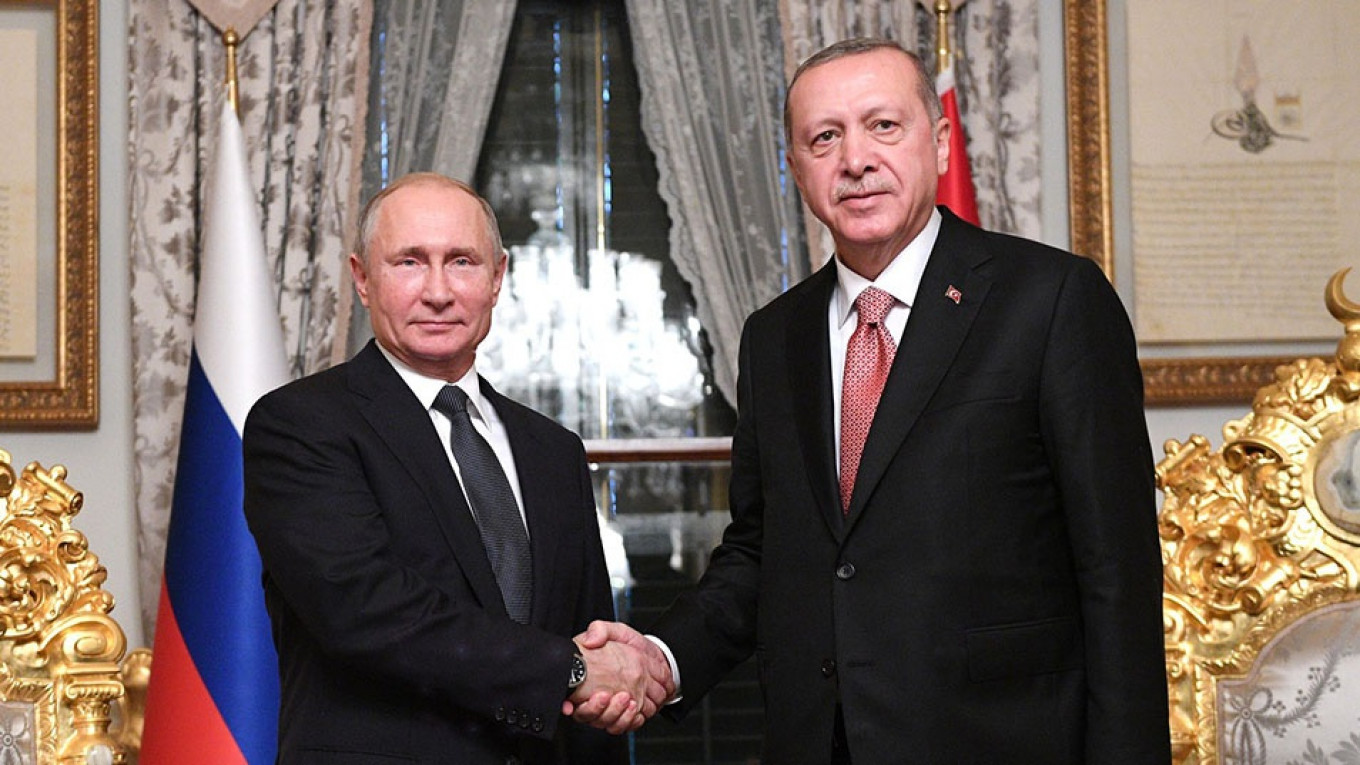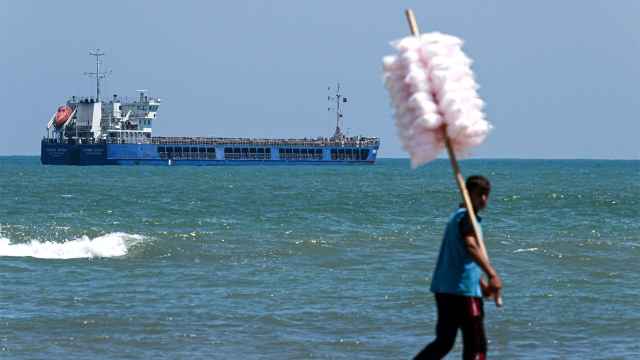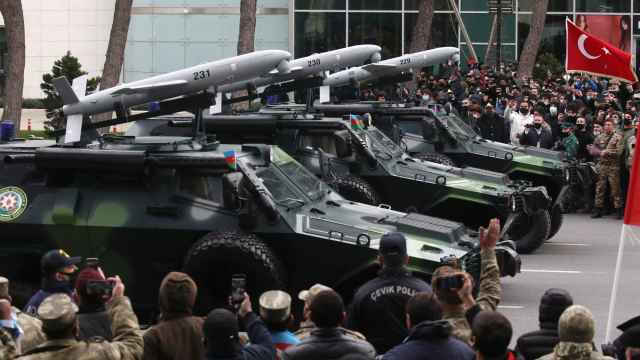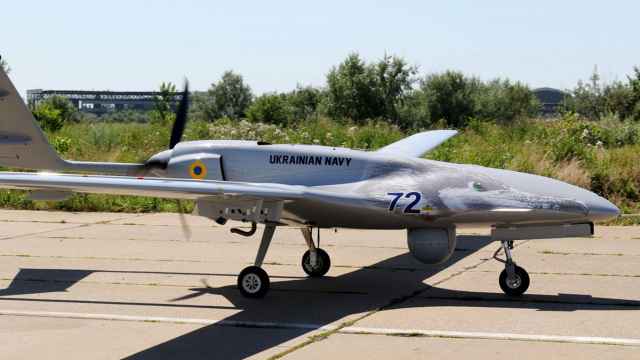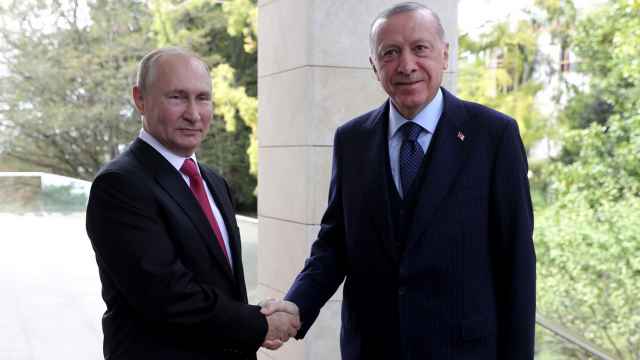On Jan. 23 Russian President Vladimir Putin and his Turkish counterpart Recep Erdogan met in Moscow to discuss possible resolutions to the Syrian Civil War.
Russia is struggling to find support from global powers for its future vision of Syria. In light of this, Putin and Erdogan’s meeting had an added salience as Turkey remains the sole partner that could help Russia devise a solution to the crisis.
Russia considers Trump’s announcement of a planned U.S. troop withdrawal from the region as a positive step towards the settlement of the civil war, but more importantly, its establishment of dominance in the region. However, the resultant power vacuum will stoke Erdogan’s ambitions of reaching an agreement favourable to Turkey’s interests.
The Moscow meeting was focused on deciding the future of two crucial territories: the Kurdish-controlled areas in northeastern Syria and the Idlib province, recently taken over by Hayat Tahrir Al Sham, al-Qaeda’s latest incarnation.
Russia and Turkey historically advocate different positions towards the Syrian Kurds, making arriving at a solution palatable to both sides no easy task.
From the Turkish perspective, the Syrian Kurds of the Democratic Union Party (PYD), who control northeastern Syria and are allies of the Kurdistan Workers’ Party (PKK), a militant, terrorist group, present a definitive threat. Erdogan, therefore, insists on establishing a 20-mile safe zone at the Turkish-Syrian border to prevent infiltration of PKK-allied elements — something promised to him by Trump.
However, the Kremlin holds the principled position that the territory should be controlled by the Syrian government. Russian policy makers believe that if a Turkish-controlled safe zone were to be agreed upon, Erdogan would be loath to return the buffer to al-Assad.
These disagreements were vocalised during the press conference. President Putin made it clear that Moscow opposes a Turkish land grab and referred to the outstanding Adana Agreement of 1998, according to which, it is the Syrian government’s responsibility to deal with the Islamist threat of the PKK.
Little attention was paid during the press conference to the situation in Idlib, the outcome of which now seems to be directly linked to the resolution of the Kurdish issue in the northeast. Both parties failed to meet the deadlines for the establishment of the demilitarized zone in Idlib, and against the backdrop of Hayat Tahrir Al Sham’s takeover of the area, the Russia-Turkey agreement on demilitarising the area may be spent.
Putin’s sole reference to Idlib at the press conference was that the fight against terrorism there should continue. Erdogan, however, may have devised a different plan for the last remaining opposition region. In light of the fact that Hayat Tahrir Al Sham’s takeover in Idlib only became possible as result of Turkey’s withdrawal of support from the local moderate opposition, Erdogan may have accepted the idea of a Syrian government takeover of the area under the pretext of the fight against terrorism.
In return for this Syrian takeover, Erdogan would likely ask for concessions from al-Assad and Putin in the Kurdish-controlled northeast area. Judging by the meeting on Wednesday, Vladimir Putin is not entirely sold by this idea.
A Message from The Moscow Times:
Dear readers,
We are facing unprecedented challenges. Russia's Prosecutor General's Office has designated The Moscow Times as an "undesirable" organization, criminalizing our work and putting our staff at risk of prosecution. This follows our earlier unjust labeling as a "foreign agent."
These actions are direct attempts to silence independent journalism in Russia. The authorities claim our work "discredits the decisions of the Russian leadership." We see things differently: we strive to provide accurate, unbiased reporting on Russia.
We, the journalists of The Moscow Times, refuse to be silenced. But to continue our work, we need your help.
Your support, no matter how small, makes a world of difference. If you can, please support us monthly starting from just $2. It's quick to set up, and every contribution makes a significant impact.
By supporting The Moscow Times, you're defending open, independent journalism in the face of repression. Thank you for standing with us.
Remind me later.



